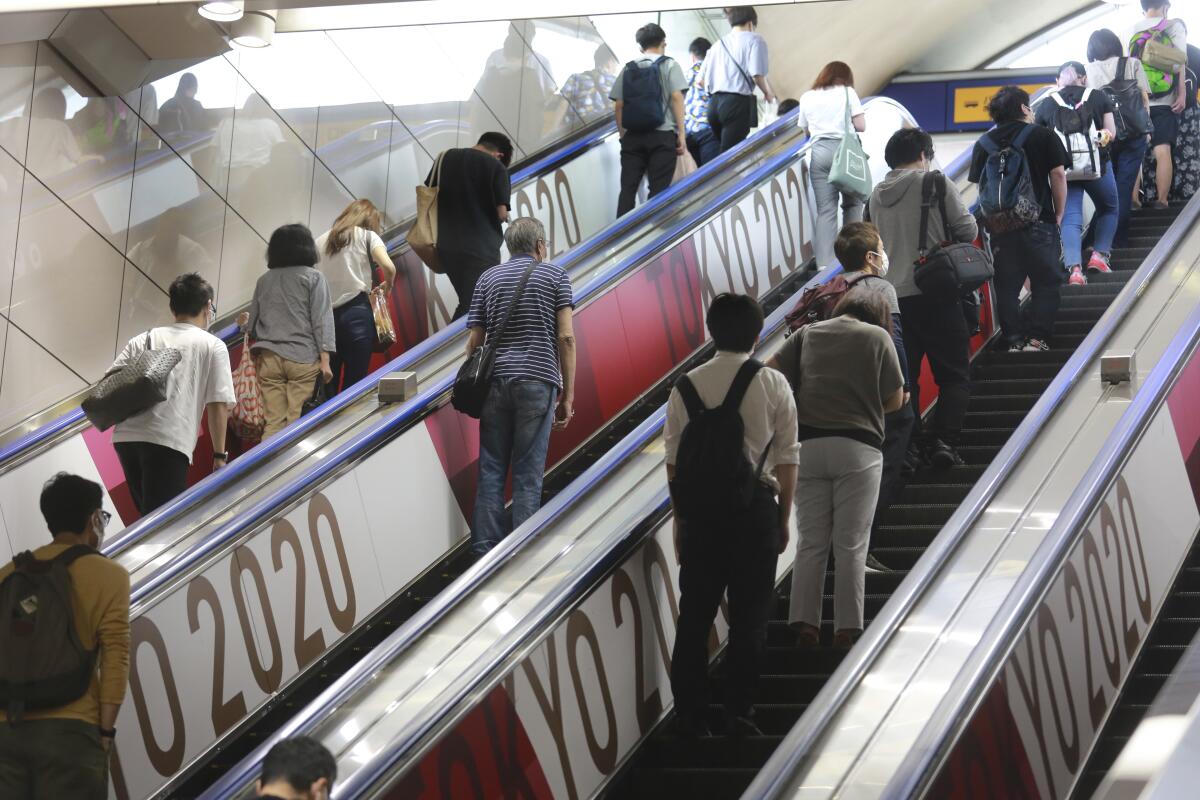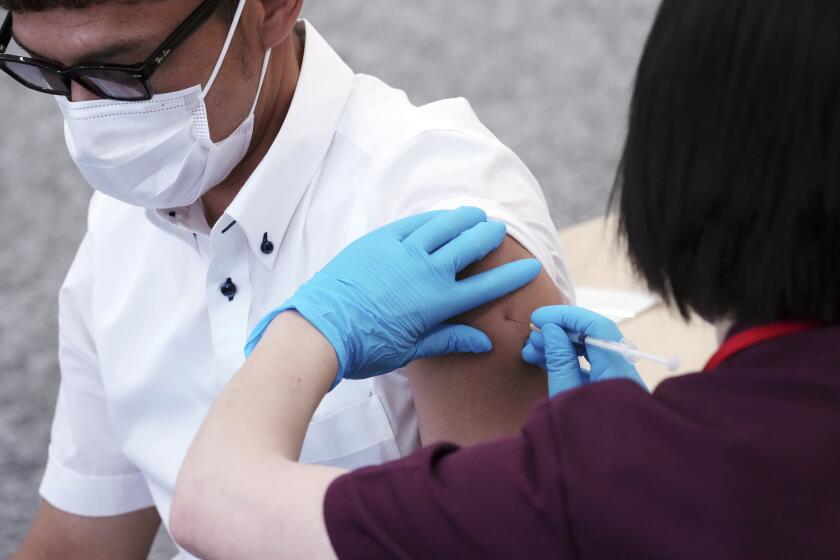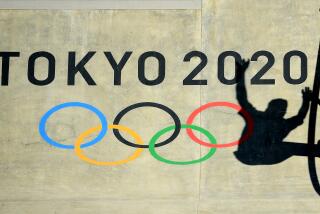Olympics likely to open during COVID-19 state of emergency in Tokyo

TOKYO — Surging COVID-19 cases in Tokyo have hit a two-month high that almost guarantees the Japanese government will declare a new state of emergency next week that will continue for the duration of the Tokyo Olympics.
The pandemic-delayed Olympics open in just over two weeks, on July 23.
International Olympic Committee President Thomas Bach is scheduled to arrive in Tokyo on Thursday, when he will be greeted by the rising cases as he self-isolates for three days in the IOC’s five-star hotel in the capital.
A new state of emergency could lead to a ban on even local fans. That decision on fans is expected Friday when local organizers meet with the IOC and others.
The present quasi-state of emergency ends Sunday. Tokyo reported 920 new cases on Wednesday, up from 714 last Wednesday. It is the highest total since 1,010 were reported on May 13.
Prime Minister Yoshihide Suga met with key ministers to discuss virus measures and reportedly is considering reinstating a state of emergency in the capital until Aug. 22. The Olympics end on Aug. 8.
After political, bureaucratic and logistical delays, Japan’s COVID-19 vaccination drive is taking off, with the Tokyo Olympics looming in a month.
Suga did not confirm the report but noted Tokyo’s surge and vowed “to do everything we can to prevent the further spread of the infections.”
Suga said he would make a final decision Thursday after consulting with a panel of experts.
Fans from abroad were banned from attending the Olympics months ago. But just two weeks ago, organizers and the IOC decided to allow venues to be filed to 50% of capacity, not to exceed 10,000 spectators.
The soaring cases are likely to mean that venues will be without any fans, although sponsors and others may have access. The no-fan atmosphere could include the opening ceremony at the $1.4-billion National Stadium.
“The infections are in their expansion phase and everyone in this country must firmly understand the seriousness of it,” Dr. Shigeru Omi, a top government medical advisor, told reporters.
He urged authorities to quickly take tough measures ahead of the Olympics with summer vacations approaching.
“The period from July to September is the most critical time for Japan’s COVID-19 measures,” Omi said.
Olympic athletes have relied on unique workouts and sports psychologists to overcome the shutdown robbing them of a chance to hone their competitive edge.
Tokyo Gov. Yuriko Koike told reporters that she expects the government to declare a state of emergency in Tokyo, the fourth in the capital since the pandemic began early last year.
Separately, a government COVID-19 advisory panel met Wednesday and expressed concerns about the ongoing resurgence of the infections.
“Two-thirds of the infections in the capital region are from Tokyo, and our concern is the spread of the infections to neighboring areas,” said Ryuji Wakita, director-general of the National Institute of Infectious Diseases.
The Olympics are pushing ahead against most medical advice, partially because the postponement of 15 months stalled the IOC’s income flow. The organization gets almost 75% of its income from selling broadcast rights, and estimates suggest it would lose between $3 billion and $4 billion if the Olympics were canceled.
Nationwide, Japan has had about 810,000 cases and nearly 14,900 deaths. Only 15% of Japanese are fully vaccinated, compared with 47.4% in the United States and almost 50% in Britain.
More to Read
Go beyond the scoreboard
Get the latest on L.A.'s teams in the daily Sports Report newsletter.
You may occasionally receive promotional content from the Los Angeles Times.








